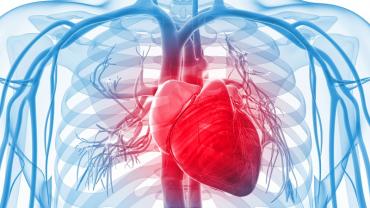
According to a new study published in Nutrients researchers demonstrated that genistein helps improve cardiovascular function in postmenopausal women with metabolic syndrome.
Previous research has demonstrated genisteins benefits for improving bone mineral density; however there is limited human data on its cardiovascular effects.
In this new study researchers investigated the effects of genistein on cardiac function in postmenopausal women with metabolic syndrome. This study consisted of 22 patients who were given 54 mg of genistein supplementation daily for one year or placebo in combination with a Mediterranean diet and exercise.
After one year of supplementation HOMA-IR visfatin and homocysteine decreased significantly in the genistein group. Visfatin is an adipocyte hormone related to cardiovascular disease which mediates vascular inflammation and pro-inflammatory cytokines. In addition both left ventricular ejection fraction and left atrium remodeling were significantly improved.
The improvement in left atrium size and systolic volume index is interesting as patients with metabolic syndrome and hypertension have an increased risk of atrial fibrillation and heart failure. These results demonstrate genisteins cardioprotective role which may reduce this potential dysfunction.
In addition genistein is a unique botanical that rebalances the metabolic processes of bone remodeling towards bone formation and reduces the frequency and severity of hot flashes.
Combining genistein with adequate vitamins and minerals such as vitamin D calcium magnesium zinc and vitamin K2 provides optimal support for helping to increase bone mineral density reduce hot flashes and provide a cardioprotective effect.
By Michael Jurgelewicz DC DACBN DCBCN CNS